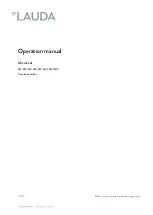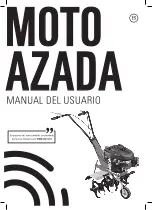
Operation
•
Never run an engine in an enclosed area.
•
Only operate in good light, keeping away from holes and
hidden hazards.
•
Start the engine only from the operator’s position.
•
Never operate without the shields, covers, or other guards
securely in place. Be sure all interlocks are functioning
properly.
•
Do not change the engine governor setting or overspeed
the engine.
•
Raise the flail blades, stop the machine, and stop the
engine before leaving the operator’s position for any
reason.
•
Stop the equipment and inspect the flail blades after
striking an object or if an abnormal vibration occurs.
Make necessary repairs before resuming operation.
•
Keep hands and feet away from the flail blade area.
•
Never carry passengers, and keep pets and bystanders
away.
•
Be alert, slow down, and use caution when making turns.
Look behind and to the side before changing directions.
•
Do not operate the machine while under the influence
of alcohol or drugs.
•
Lightning can cause severe injury or death. If lightning
is seen or thunder is heard in the area, do not operate
the machine; seek shelter.
•
Use extreme care when loading or unloading the machine
into a trailer or truck.
•
Use care when approaching blind corners, shrubs, trees,
or other objects that may obscure vision.
•
Always be aware of obstacles that may be in the area
of operation. Plan your path to avoid contact with any
obstacle by you or the machine.
Slope Operation
•
Do not operate near drop-offs, ditches, steep banks, or
water. Wheels dropping over edges can cause rollovers,
which may result in serious injury or death.
•
Do not operate on slopes when grass is wet. Slippery
conditions reduce traction and could cause sliding and
loss of control.
•
Do not make sudden turns or rapid speed changes.
•
Reduce speed and use extreme caution on slopes.
•
Do not operate on a slope greater than 20 degrees.
•
Remove or mark obstacles such as rocks, tree limbs, etc.
from the operating area.
•
Watch for ditches, holes, rocks, dips, and rises that change
the operating angle, as rough terrain could overturn the
machine.
•
Always avoid sudden starting or stopping on a slope. If
tires lose traction, disengage the flail blades and proceed
slowly off the slope.
•
Follow the recommendations for wheel weights or
counterweights to improve stability.
Maintenance and Storage
•
Wait for all movement to stop before adjusting, cleaning,
or repairing. Raise the flail blades, stop the machine, stop
the engine, and disconnect the spark-plug wire.
•
Clean grass and debris from the blades, drives, mufflers,
and engine to help prevent fires. Clean up oil or fuel spills.
•
Let the engine cool before storing, and do not store the
machine near a flame.
•
Shut off the fuel while storing or transporting the machine
on trailers. Do not store fuel near flames or drain indoors.
•
Park the machine on level, hard ground. Never allow
untrained personnel to service it.
•
Use jack stands or safety latches to support components
when required.
•
Carefully release pressure from components with stored
energy.
•
Remove the spark-plug wire before making any repairs.
•
Keep hands and feet away from moving parts. If possible,
do not make adjustments with the engine running.
•
Keep all parts in good working condition and all hardware
tightened. Replace all worn or damaged decals.
•
Use only Toro-approved attachments. The warranty
may be voided if the machine is used with unapproved
attachments.
4





































